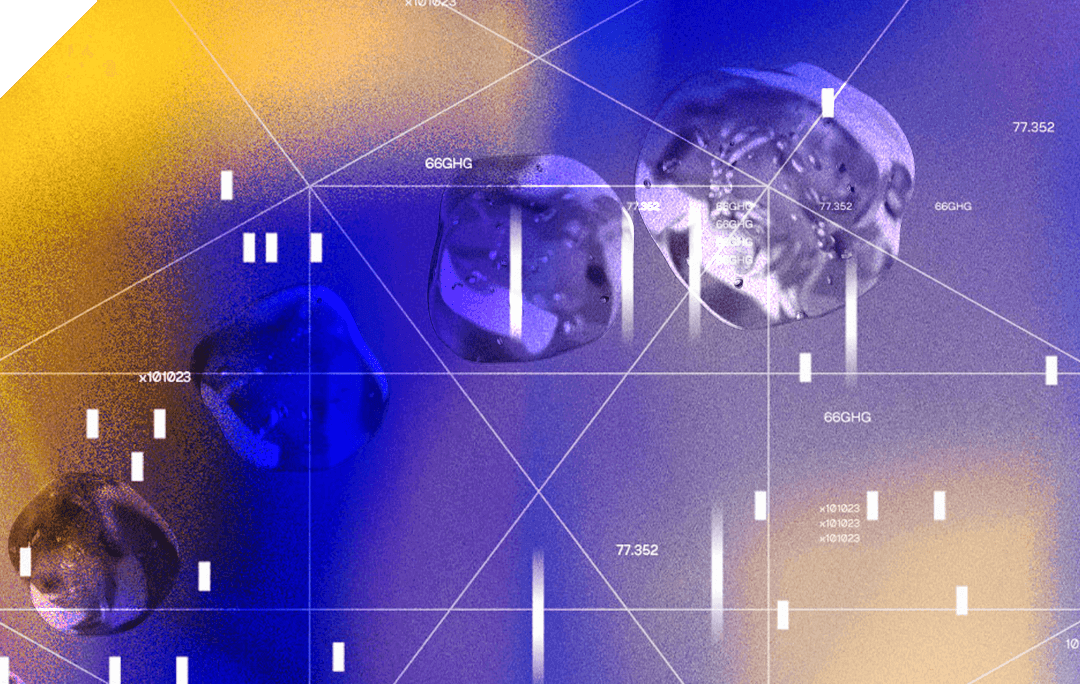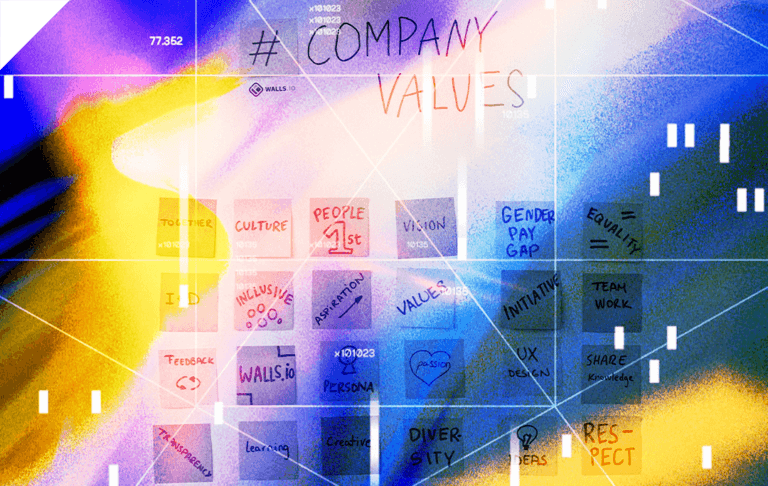Artificial Intelligence (AI) has burst onto the scene, leaving no industry untouched — and design is no exception. This powerful technology holds impressive potential to change our traditional design processes from the ground up. Through accelerated creativity and efficiency, AI is poised to transform not only how we create but also what we can envision.
As designers, it’s not about being replaced by machines, but rather embracing AI as a tool to push creative boundaries and enhance our human ingenuity. Welcome to the era of AI-enhanced design, where imagination meets unprecedented scalability.
AI in Design: A Creative Catalyst
At the crossroads of creativity and technology, we find AI playing a significant role in design generation. Tools like OpenAI’s Dall-E and Midjourney are shaking up our traditional understanding of design creation. Dall-E generates unique images from textual descriptions, while Midjourney predicts the next steps in the design process using historical data.
Think about it this way: these AI tools are like having a creative sidekick! They dive into huge pools of data to whip up everything from cool images to full-blown designs. It’s like breaking free from the usual limits of what we can do. We’re stepping into a brand new chapter where AI isn’t just a tool, but a vital partner in creativity. It’s like giving a supercharge to our imagination, turning all those ‘what-ifs’ into amazing realities.
Under the hood, the technology is both straightforward and complex. It’s all about patterns. AI algorithms, like those in Dall-E and Midjourney, start by devouring heaps of data — images, layouts, color schemes, and more.
Using machine learning models like neural networks, AI identifies patterns and connections within this data that humans might overlook. These patterns form the basis for generating designs. For instance, an AI might learn that certain color combinations evoke specific emotions or that particular shapes align with specific brands or cultures. By recognizing these correlations and applying them creatively, AI can produce innovative and contextually relevant design concepts.
Editing with AI: From Quick Edits to Color Mastery
AI’s application in design doesn’t end at creating initial concepts — it extends to refining and editing designs, too. We can broadly understand editing with AI by using two concepts: quick iterations and color adaptation.
Tools embedded with AI can make rapid iterations to design elements based on real-time feedback, saving valuable hours of manual tweaking. For instance, if a certain shade of blue isn’t resonating with an audience, AI can suggest and implement alternative color schemes that might better evoke the desired response.
Moreover, some AI tools can intelligently adapt colors based on emotional cues or brand guidelines. An AI might identify that a warmer palette aligns more with a brand’s “friendly” persona, or it could suggest cooler tones for a more “corporate” vibe. These on-the-fly adjustments streamline the design process and ensure consistency and resonance with target audiences while keeping designers in the driver’s seat.
The Design Revolution Underway
AI’s influence on design isn’t the future. It’s happening now. Consider Nutella — in 2018, the company leveraged AI to craft seven million unique versions of its packaging, a feat unimaginable without AI given the scale, time, and cost. Fast-forward to 2023, and Coca-Cola is calling on digital artists to create magic using its new AI platform.
But marketing and branding aren’t the only areas touched by this revolution. In architecture, creators like Dr Mohammed Makki and Dave Pigram from LX at UTS are blending human creativity with machine intelligence for more innovative design processes. Even construction benefits from AI’s integration with Building Information Modeling (BIM), enriching clients’ experience through improved planning and efficiency.
Meanwhile, tools like Deep-image.ai are revolutionizing graphic arts production on platforms like Etsy and enhancing 3D graphic design workflows at Pixcap.com. The bottom line? The revolution in design has begun thanks to AI’s expanding influence.
Brainstorming Reimagined: AI’s Role in Supercharging Design Creativity
Brainstorming sessions have long been the lifeblood of design work. AI, however, is ready to shake up this vital process. By leveraging AI in brainstorming sessions, designers can now tap into a vast reservoir of data-driven insights and trends.
AI can swiftly analyze past and present design elements, user feedback, and market trends to suggest fresh and impactful design directions. This data-driven approach removes guesswork from the equation while ensuring designs remain relevant and engaging for the target audience.
But AI doesn’t stop at providing insight. It also promotes an interactive brainstorming experience with AI-powered tools. Ever thought about having a creative partner who never gets tired? These tools are like tireless co-creators that provide an unlimited flow of ideas inspired by a diverse range of inputs from around the globe.
Turning these brainstorming sessions into interactive dialogues with AI can significantly boost innovative output while reducing time spent on fruitless ideation.
LLMs at Work: AI-Powered Words Elevating Design Narratives
Alright, let’s talk about Large Language Models (LLMs) and how they’re changing the game in design. You know how the words we use are just as crucial as the visuals in design? That’s where these cool AI tools like OpenAI’s GPT-4 come into play. These LLMs are brainy, using some serious language skills to get, create, and spruce up text.
Imagine you’ve written something for a design, but it’s just not hitting the mark. No sweat! With an LLM, you can tweak that story until it’s spot-on for your audience and fits like a glove with your design.
But wait, there’s more! It’s not just about tweaking words. Say you’ve got this vibe you want for your brand, but you’re stuck on how to weave it into a story that pops. Here’s where AI flexes its muscles. It can sift through loads of successful brand stories, give you the lowdown on what works, and even help you nail the perfect tone, pick out catchy words, and layout your story for the biggest impact.
Bottom line: With AI in your corner for creating and refining content, you can make sure your messaging is as powerful as your design, giving you creations that really speak to people.
Multi-Modal AI Transforming Text and Visual Design
Alongside language, AI’s potential in visual design is truly groundbreaking. Thanks to multi-modal generative AI, we now have the ability to analyze and blend visuals and text together. This AI not only understands design elements but also the underlying semantic meaning.
Think of having access to an inexhaustible source of design inspiration from across eras and cultures. An AI can survey a vast repository of visual data ranging from classical art to modern typography and use these diverse inputs to suggest innovative designs that break away from the norm. It’s like having a global art museum at our fingertips, constantly proposing fresh visuals we might never have encountered otherwise.
Now imagine being able to merge different styles into a cohesive design using AI. Want to blend the minimalism of Bauhaus with the dynamism of Pop Art? No problem. With generative AI, such hybridizations become not just possible but effortless. We can experiment with disparate styles until we discover a unique aesthetic that truly represents our brand or message. These capabilities make multi-modal generative AI an exciting frontier in enhancing the creative brainstorming process.
Streamlining: Maximizing Efficiency with AI
There’s no denying that the creative process can often be time-consuming, particularly when it comes to design. But AI comes into play by streamlining tasks and maximizing efficiency. Let’s explore how.
Task Automation: Doing More with Less
Design involves a multitude of repetitive tasks, including resizing images, converting formats, and adjusting basic layers. These are necessary evils in the process but can be significantly time-consuming and monotonous. Imagine a tool that could handle these tasks on our behalf, freeing up time to focus on more complex aspects of design. That’s exactly what AI offers.
For instance, take the task of resizing images for different platforms, which can quickly become tedious when dealing with large volumes of assets. With an AI-powered tool, we can automate this process entirely, ensuring consistency across platforms without breaking a sweat.
Pattern recognition and automated asset categorization are integral to maintaining brand consistency but are often laborious in execution. AI systems have the ability to analyze countless visual data points, recognizing patterns much quicker than the human eye. This allows designers to categorize assets efficiently and maintain a coherent visual identity across all branding elements.
Fine-tuning Design Efficiency
Beyond automating repetitive tasks is the concept of improving efficiency within design projects through testing and real-time feedback.
AI isn’t just about doing things faster. It also introduces an element of precision in predicting design effectiveness before any actual implementation occurs.
By leveraging machine learning algorithms trained on vast datasets of user behavior and preference trends, AI tools can predict how well a particular design might resonate with its intended audience or suggest optimizations for better performance.
What about instant feedback? With traditional methods, designers have had to wait until after client or user feedback before making revisions, which can lead to redesigns or even starting from scratch if feedback isn’t favorable.
AI changes this by providing real-time critiques based on design principles, allowing designers to make necessary adjustments on the fly. This capability accelerates the design process and can significantly reduce the time spent on revisions.
AI’s Double Whammy: Saving Time and Money While Fueling Creativity
Think about it: AI in design is not just a timesaver; it’s also a money-saver. In the business world where time equals money, AI’s ability to zip through tedious tasks and speed up feedback loops translates directly into financial savings.
But there’s more to the story – creativity. AI is fantastic for boosting efficiency, but the real magic in design comes from the human touch. While AI offers handy tips and data-driven insights, it’s the designer’s creativity that makes a design truly stand out and connect with the audience.
The AI Design Revolution: Balancing Efficiency with Human Creativity
AI is a powerful tool, but it’s crucial to remember it’s just that – a tool. It’s here to enhance creativity, not overshadow it. By automating routine tasks, AI frees up designers to explore their creative impulses and experiment with new ideas. The goal is to strike a perfect balance: leveraging AI for efficiency while keeping our creative juices flowing to create designs that resonate both emotionally and functionally.
Reflecting on AI’s role in design, we see it’s more than just a promising future; it’s a transformative force. It’s redefining our work processes, infusing creativity, and boosting efficiency in unimaginable ways. However, AI isn’t a catch-all solution. It’s a partner, amplifying our creative capabilities and helping us execute complex designs with speed and originality.
At the heart of design is an art form that thrives on our unique perspectives and emotional resonance. While AI can assist with data and trends, it’s our creative flair that breathes life into designs.
So here’s a shout-out to all designers: Embrace AI as your creative collaborator. Let it take care of the mundane, enriching your work with insights. But never lose sight of the human creativity that drives truly inspiring design. Use technology as a catalyst for innovation, but keep steering your creative ship with your distinct voice.
Additional Resources
Curious about AI in design? Check out these tools that are changing the game:
- Microsoft Designer is cooking up something cool. It’s all about turning your ideas into unique visuals, making design a piece of cake for everyone, no matter your skill level.
- NVIDIA’s Canvas app is like a magic wand for artists and designers. With their GauGAN2 AI, your simple sketches turn into stunning, realistic paintings in just a few strokes.
- Adobe Sensei is the brain behind Adobe’s creative suite. From Photoshop’s smart object selection to Premiere Pro’s savvy audio features, Sensei is all about boosting your productivity and creativity. And it’s only getting smarter.
These platforms aren’t just tools; they’re doorways to a world where design boundaries are meant to be pushed, all thanks to AI.
Want to elevate your design? Myosin is your go-to growth marketing agency, we excel in transforming your design process, boosting creativity and efficiency. Partner with Myosin to bring your visionary design ideas to life. Contact us and step into the future of design!





